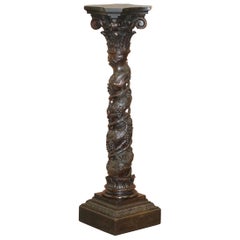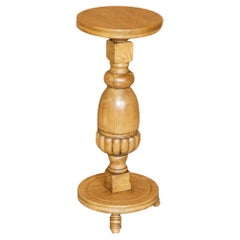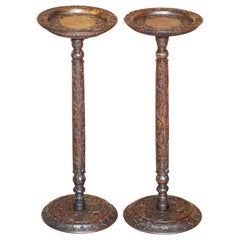Beautiful plants deserve beautiful homes. It’s time to introduce antique and vintage planters and jardinieres to your home’s interiors and outdoor garden area.
The word “jardiniere” has roots in French, but the appeal of these vessels is global. The popularity of jardinieres — ceramic pots intended for cut flowers or plants — quickly gained traction in the United States during the start of the 20th century, when you could find them in some middle- and upper-class American homes. Jardinieres had already been coveted goods overseas for at least a couple of centuries by then, as intricate planters crafted from Chinese porcelain or gilded-bronze versions from Japan could be found in the living rooms of wealthy Europeans.
Today, the love for planters and jardinieres knows no bounds. And whether you consider yourself a proper gardener or merely a doting plant parent, there is likely a use for a planter inside or in the lively outdoor space around your home.
Outside, a pair of marble and terracotta planters or cast-iron urns designed in the neoclassical style can add a stately touch to your landscape design while helping establish boundaries between the areas you’ve created for gardening and entertaining.
Bare corners in your living room or dining room can often be difficult to populate with furnishings that fit just so, and a planter can change that. While it’s possible to get maximal impact from minimalist pottery — an understated mid-century modern planter could deliver on that front — you might be pining for an on-trend planter with pizzazz. Look to an outwardly angular fiberglass design decked out in bright colors to give your blooms a run for their money, while mounted or vintage hanging vessels can serve as the frame for nature’s organic artwork, quite literally taking your gardening skills to the next level.
Browse a broad collection of antique and vintage planters and jardinieres on 1stDibs today.


